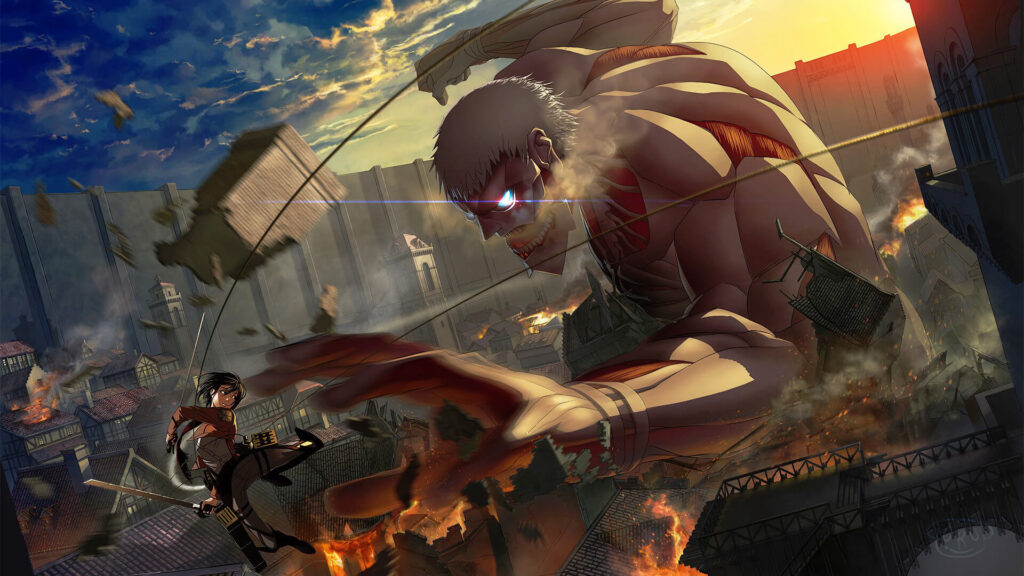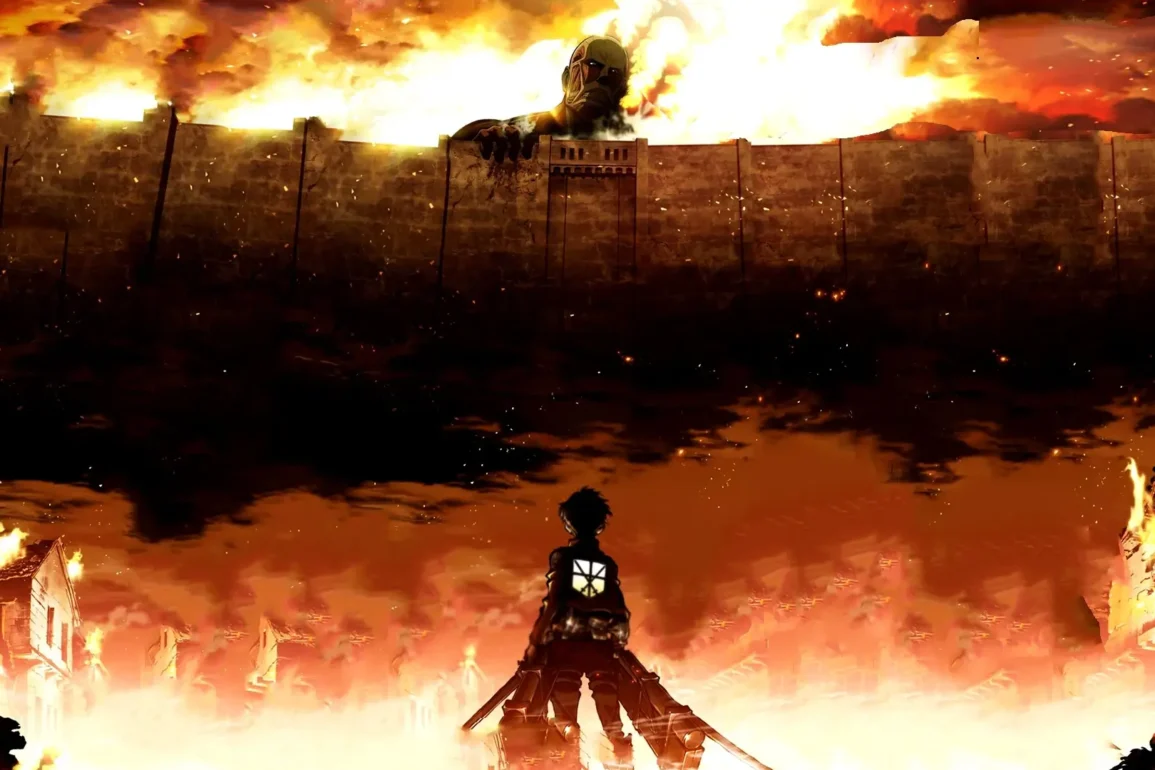
Attack on Titan, originally titled “Shingeki no Kyojin” in Japanese, is a manga series created by Hajime Isayama that has captured the imaginations of readers and viewers worldwide since its debut in 2009. With its gripping story, intricate character development, and thought-provoking themes, this dark fantasy series has left an indelible mark on the world of manga and anime. In this article, we will explore the world of Attack on Titan, discussing its plot, characters, and the societal commentary it offers.
Plot
Attack on Titan is set in a world where humanity is on the brink of extinction due to gigantic humanoid creatures known as Titans. These Titans, who range from mindless giants to more intelligent and deadly variants, devour humans on sight. To survive, the remnants of humanity have retreated behind enormous, concentric walls, the most significant of which is Wall Maria.
The story primarily follows Eren Yeager, his adoptive sister Mikasa Ackerman, and their childhood friend Armin Arlert. After their hometown is destroyed and Eren’s mother is devoured by Titans, the trio joins the military to fight back against the Titans and uncover the truth behind their existence.
As the series progresses, it delves into complex political intrigue, the mysteries surrounding the Titans, and the hidden histories of the world. The narrative twists and turns, revealing shocking secrets and pushing the characters to their limits. Attack on Titan is known for its unexpected plot developments, keeping readers and viewers constantly on the edge of their seats.
Characters
The characters in Attack on Titan are multifaceted and undergo significant development throughout the series. Eren Yeager, initially driven by a desire for vengeance, evolves into a complex figure who grapples with the morality of his actions. Mikasa Ackerman, fiercely protective of Eren, confronts her own vulnerabilities and desires for a life beyond the battlefield. Armin Arlert, initially timid, emerges as a brilliant strategist crucial to humanity’s survival.
The series also features a wide range of supporting characters, each with their own unique motivations, strengths, and weaknesses. Levi Ackerman, the squad captain, is known for his stoicism and unparalleled combat skills. Historia Reiss, the true heir to the throne, grapples with her identity and the responsibilities it entails. These characters, among many others, contribute to the depth and richness of the story.
Themes
Attack on Titan explores a plethora of themes that resonate with its audience. One of the most prominent themes is the nature of freedom. The characters’ pursuit of freedom drives their actions, whether it’s the freedom to live without fear of the Titans or the freedom to determine their own destinies. The series also delves into the consequences of power, the cyclical nature of history, and the moral gray areas that arise during times of desperation.
Societal Commentary
Beyond its captivating story and characters, Attack on Titan serves as a commentary on various societal issues. It explores authoritarianism, the consequences of propaganda, and the manipulation of truth for political gain. The story’s examination of the divisions between different groups within society and their struggles for power and resources is eerily reminiscent of real-world conflicts.
Conclusion
Attack on Titan is more than just a manga and anime series; it’s a cultural phenomenon that has sparked discussions on a global scale. Its ability to merge compelling storytelling, complex characters, and thought-provoking themes has earned it a dedicated fanbase. As readers and viewers continue to follow the adventures of Eren, Mikasa, Armin, and the rest of the characters, Attack on Titan remains a modern epic that challenges our perspectives on freedom, power, and the human condition.

